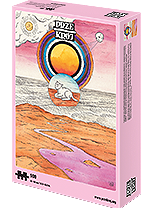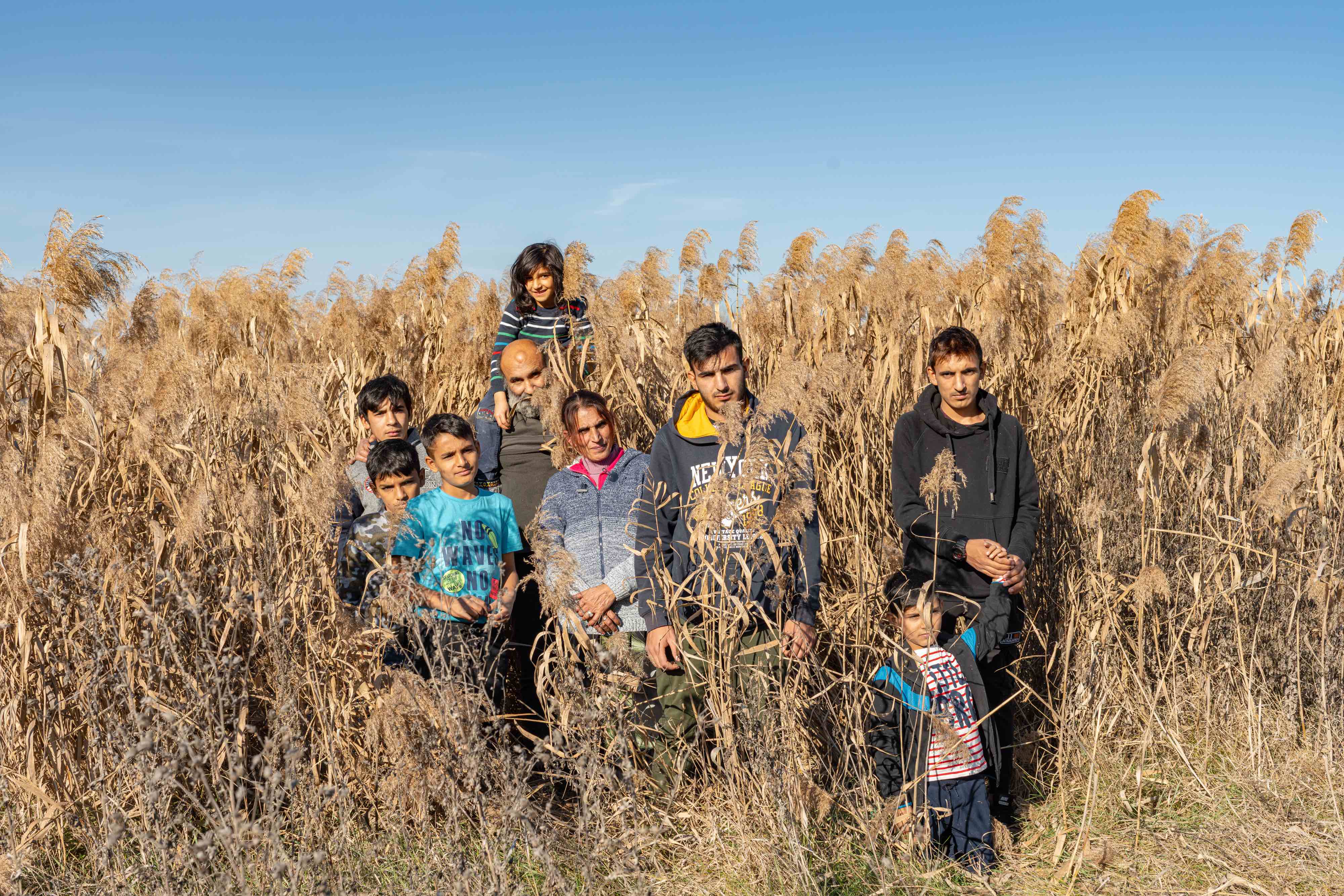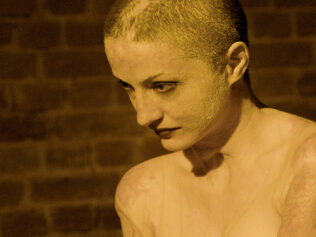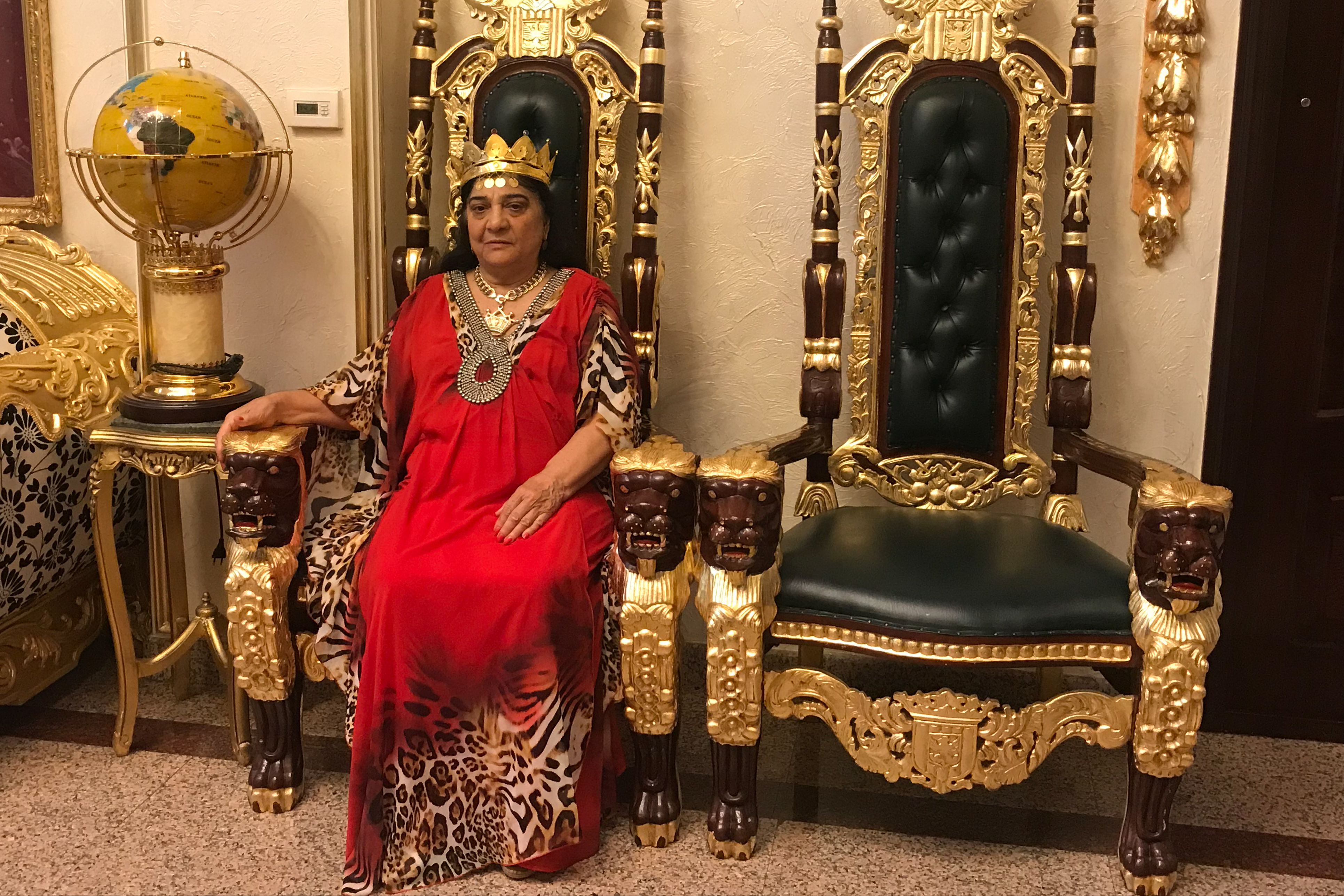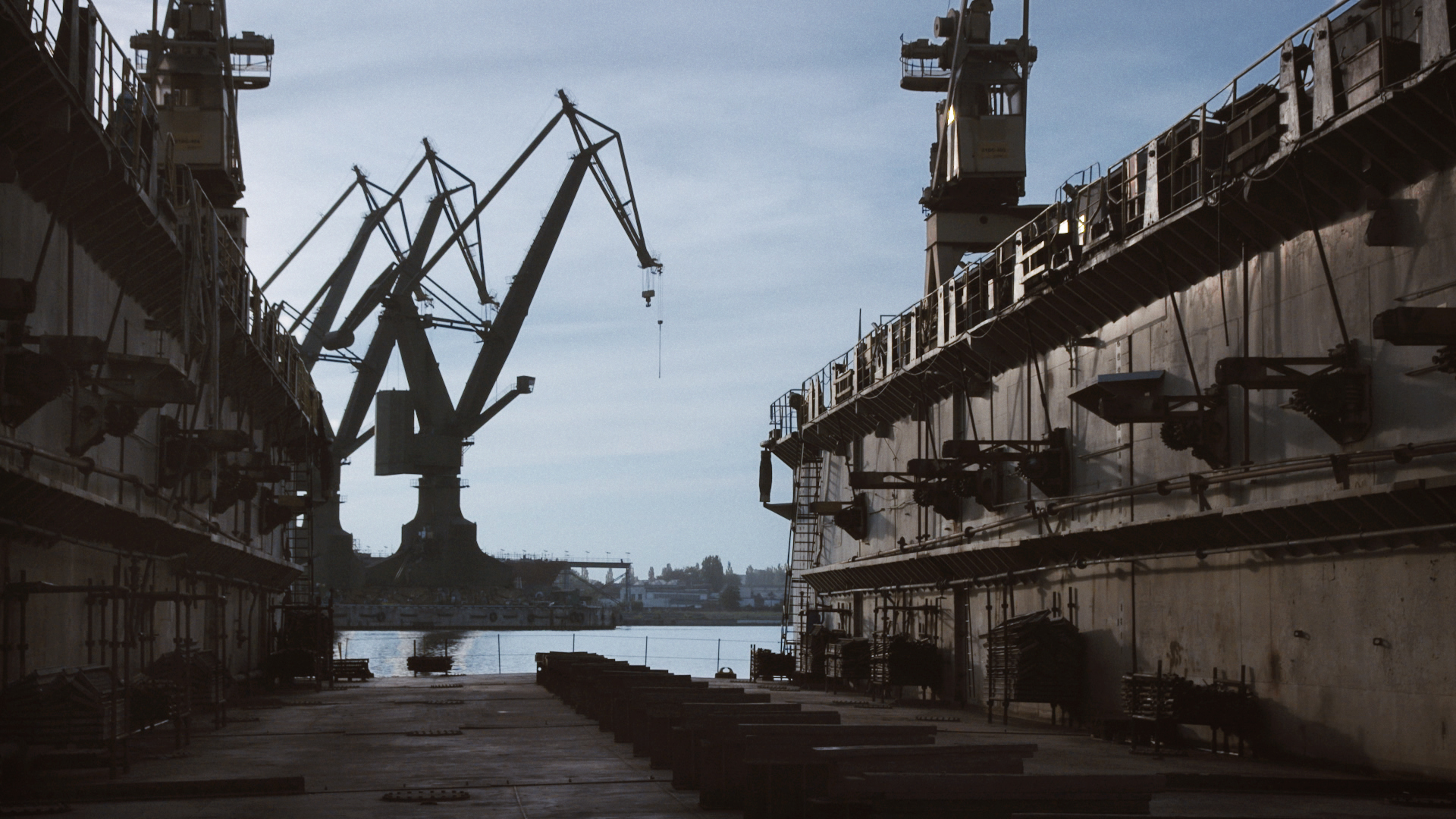
At the end of the 1990s, Gică Enache, a Romanian citizen belonging to the Roma minority, became disillusioned with the modern way of life. In its place, he opted for a Waldenesque existence with his family in the heart of the urban wilderness of the Văcărești Delta, a vast and abandoned swampy area on the outskirts of Bucharest. Living in this place for almost 20 years, cut off from the city’s toxic temptations and yet located at arm’s length from its busy streets, Gică perceived the decision as one of the best he had ever made, even though his wife and six children were devoid of the basic conveniences of contemporary life.
His dream collapsed when the Delta was declared a natural reserve and subsequently turned into the largest urban park in the European Union, resulting in the forced re-integration of the Enaches into the city life they had half-forgotten, or, in the case of the young children, never knew. Luckily, former investigative journalist Radu Ciorniciuc was there with his crew and camera to document their often painful journey. This became Acasă, My Home, a beautiful, thoughtful and utterly heart-breaking film that has been nominated for this year’s European Film Award for Best Documentary.
Dariusz Kuźma: The Enaches seem every documentary film-maker’s dream come true – truly unique people whose turbulent story makes you think about other people’s hardships and reconsider the values you live by. But they never strived for any attention; it was forced on them. How did you, a former investigative journalist, find yourself then and there with a film camera?
Radu Ciorniciuc: Before I became an investigative journalist, I was a reporter and long-form feature writer, so this documentary was actually a return to my professional roots. The difference being that this time I was using a visual language. The film was not supposed to be about the Enache family but about the Văcărești Delta. In 2016, I learned that the Romanian government was about to give a high environmental protection status to a place that was known in Bucharest as a garbage dump. 200 hectares of land almost at the heart of the city, where nobody wanted to go because it was considered filthy and dangerous, and according to numerous urban legends people got killed and raped there. For quite some time, I was aware that there was a campaign for making it into an urban park, so the decision sparked my interest. I decided to go there with a small crew and see if there was anything interesting to document. For the first two weeks, we were basically doing interviews with the people living close by, trying to make sense of this place and what might become of it.
You did not know that somewhere there, in the middle of the immensely controversial urban wilderness, lived a Roma family?
We vaguely knew about them, since the father, Gică Enache, became a local celebrity in 2012 after he saved some children from a burning house. All the media wrote about it. You know the story, former poacher turned hero of the neighbourhood, etc. But that was about it. We never really considered them for our film, we didn’t even know if they still lived there. One day, still doing the interviews, I noticed two boys hanging around one of the highly publicized meetings on the edge of the Delta. They turned out to be Gică’s children. They took us to their father and we quickly started a relationship with the whole family. We recorded their incredible story, shot everything that was there to be shot, and we should have left – but something kept us coming back to spend time with them. Gică was quite puzzled because nobody had done that before. Ever.
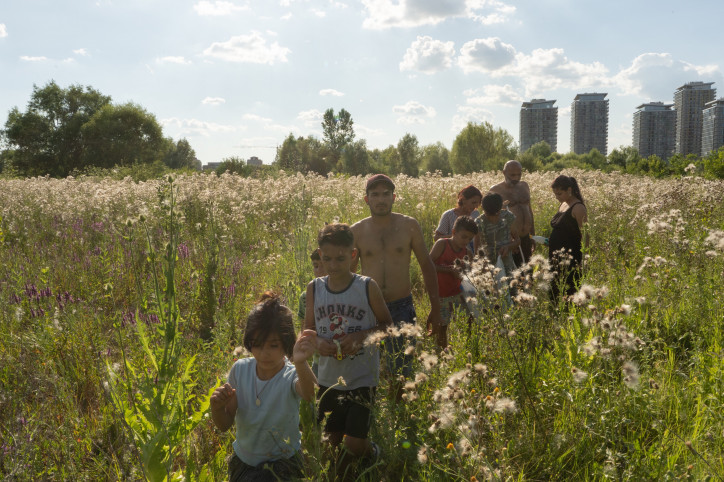
Professional curiosity?
That too, obviously, but it was much more than that. After spending some time with them, I knew they were special. But having experience of writing for the mainstream media, I understood that their story had all the elements of an ‘exotic anecdote’, another modern Robinson Crusoe or The Jungle Book tale that people love to read about, but that also exposes and endangers the ones at the centre of it. Which is what happened with one of my previous stories in an environment very similar to this one. I wanted to build a proper context around them, to create an understanding of what the Enaches are about under the surface. Four years later, I made a feature film about them.
Gică may have been in the public eye for some time, but he desperately wanted his children to remain invisible. In Acasă, you show them hiding from social workers. How many people knew that somewhere nearby lives a family that rejects the rules of ‘normal’ society? Were the Enaches simply another urban legend, or did many people know and just didn’t care?
A lot of people knew, but they just didn’t care. The first time the family was in the spotlight was when Gică saved those children in 2012. A hero, right? The authorities’ response was taking his children and putting them in a state shelter. With the help of the people who were working on the campaign to make the Văcărești Delta a protected wildlife reserve, Gică was able to bring his kids back. In the following years, he worked closely with the campaigners as a local fixer and a guide for all the biologists, scientists and journalists who would come and study this place. So, he was quite visible, but after that first exposure, his children were kept hidden from the world. I’m thankful for this question, you’ve put your finger on the problem: they all knew but didn’t care…
He knew that they did not care, but helped them to make Văcărești a government-protected park, thereby making him and his family unwanted in what they considered their home…
He was working with them to protect his family, in a way that is often ignored in the media. You see, for many years he was a poacher. Helping the campaigners gave him a sense of being useful, of actively trying to reach a higher social status and make sure his family was left alone. Even though informally, the officials and the activists were profiting from the fact that the Enaches were still living in the Delta. Gică and his boys would act as rangers and scare off poachers or illegal fishermen. They also put down fires and were a big part of making this place a reservation. After they had been forced to move to the city, Gică was enormously bitter about it. He always repeated that he was stupid to have helped everyone because very quickly they forgot about him. Needless to say, nobody cared to understand what his relationship to nature and this place was.
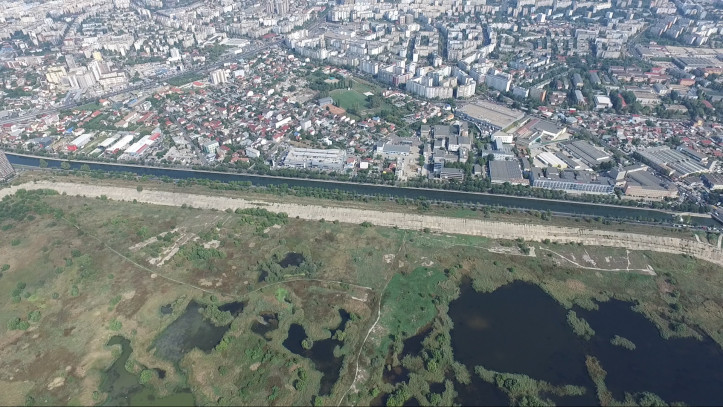
Betrayed by the society he had stopped trusting years earlier. Do you know why he decided to alienate himself and his family in the first place?
It was a number of things. In the 1990s, there was a huge economic, political and social crisis in Romania, just like in the whole of Eastern Europe. Gică was one of the many people who suffered during the transition from communism. He had worked in the biggest rubber factory in the country, and he and his relatives had been well-off. They had been true middle-class people who had had the means to go on vacations twice per year. In the 1990s, about 90% of Romanian factories were closed and Gică, still young, did something very stupid and ended up in prison for three of four months. I think that’s where the shift happened. If you know anything about the victim mentality, you would recognize the pattern in him. After prison, he simply didn’t want to have anything to do with the world. I know that in Acasă, Gică seems like a harsh patriarch figure, but underneath he was always a vulnerable human being. It wasn’t until I became a father myself, during the shooting of the film, that I started to truly empathize with his decision of isolation.
I think I know what you mean. I am a father myself and the last thing I wanted to do while watching Acasă was to judge him, even though he made many distressing decisions.
Many of his decisions are to be judged because they affected his children as well. You wouldn’t want your children to live far from healthcare or education, right? But we do very strange things in order to protect our loved ones. And this was simply Gică’s way of protecting his family from his own sufferings. He was authoritarian and the world he created in the Delta was like the communist dream of everyone working so that everyone would have the means to survive. But it did work for them. They were happy. The most painful thing to watch was how he suffered after moving to the city. He knew he couldn’t protect them anymore. All the problems he warned his kids about – that the police would beat them and people would call them gypsies – eventually happened. Gică was heart-broken.
I’m talking about him in the past tense because he… he passed away a month ago. We are all still in shock, but I see the pattern. I remember the first night he spent in the city. He couldn’t stay inside the concrete walls. He couldn’t breathe there. He slept in a chair on a porch. It took him a long time to adapt to this new place. He once said that he felt like a plant ripped away from its natural environment and put in a pot by the window. Uprooted.
Quite a poignant message to all those who share Gică’s dream of living on the fringes of the modern world. This is a test most modern societies would probably fail to pass. Do you let people you do not understand live their own way? Or is the very existence of a family like the Enaches a danger to the norms your society has to stand by in order to function.
Very true, even considering that hundreds of people – psychologists, social workers, educators and others – volunteered to our social project of helping the family to adjust to city life. It was a great communal effort. And through selling a book of photographs from the Delta, we managed to make enough money to buy the family a piece of land and a house 20 minutes away from their previous home. That is why, in the beginning, we planned to finish Acasă open-ended with the images of the Enaches moving into the city. After a few days, we realized staying with them would give us an amazing opportunity to put a mirror to our society, to ourselves, and would get us closer to depicting some of the hypocrisies of how we build our societies and communities.
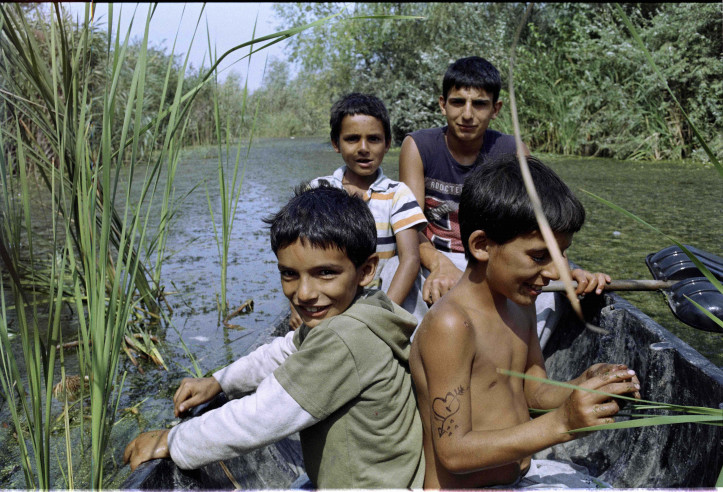
And you did not stop filming.
We filmed for the next two years, and the film is richer in context because of that. I mean, the discrimination and the racism were there from day one, but we were more interested in seeing how such a strong family unit that lived through a load of ordeals in order to survive in the wilderness would cope with an entirely different surrounding. And the sad truth is, they came apart in the city, pressured from all sides by a society that values the independence of the individual, who is said to be more creative and productive when he or she is socially independent. But, let’s be honest, who is truly socially independent these days?
This is what I liked about the film, that is does not provide easy answers and tell us how to feel about certain actions and decisions. It does not even tell us who the good guys and the bad guys are. It is not a story about an eccentric family, like the ones we are used to watching in popular films such as Little Miss Sunshine or Captain Fantastic, but a horribly bittersweet tale of people who both win and lose when confronting the surrounding world.
We wanted to give Gică and his family the space and means to tell the reality from their own point of view. This is why we made Acasă in cinema verité style, with no interviews with the characters, just observing them in different situations. Because of that, we felt we could ask a lot of big questions to which there are no straight answers. It’s not even about getting answers, but understanding that the process of maturity is about learning that to have a place in this world, whether it’s in the wilderness or in the middle of a city, you need to work with and embrace compromises. This is the real challenge. And this is when innocence dies. You can live in the wilderness, but then you have to say bye-bye to all the opportunities the city provides. You can live in the city but then you have to say bye-bye to all the liberties you can find in the wilderness. The most successful human beings are the ones who manage to find within themselves the strength to use all of the compromises of everyday life to be who they want to be, achieve what they need. As long as you know the cost, and as long as you’re ready to pay this cost, you can try to live the way you want.
How are Gică’s children now?
I would say they’re as normal as any other kids with their background are. Because they are Roma people, it’s not easy to fully integrate. Just 150 years ago, they would have been sold in monasteries as slaves. But they are definitely better than at the beginning. I mean, before moving to the city, the children had never seen running water, never used a toilet or garbage bin. Now, all of the older kids work in the Văcărești Nature Park as rangers or tourist guides. The other kids are getting a proper education, they all know how to read and write, they all have smartphones, one of them is a school football captain, super popular. We’re all proud of them and we will try to support them for as long as we are able to.
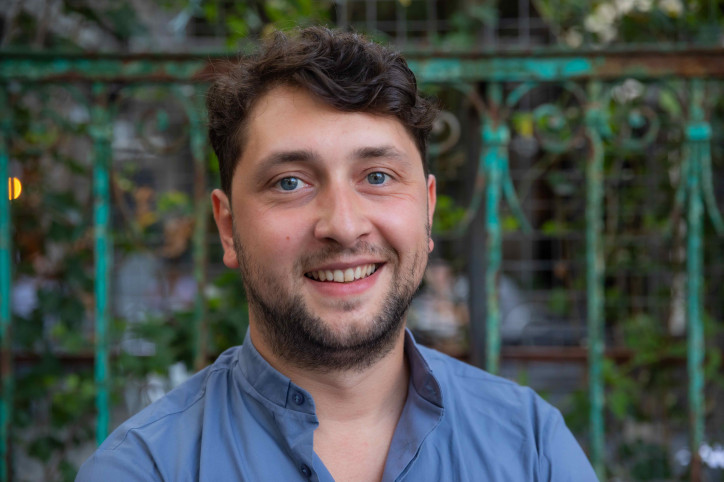
Parts of this interview have been edited and condensed for clarity and brevity.
The film “Acasă, My Home” is a HBO Europe co-production and is available on HBO and HBO Go.

